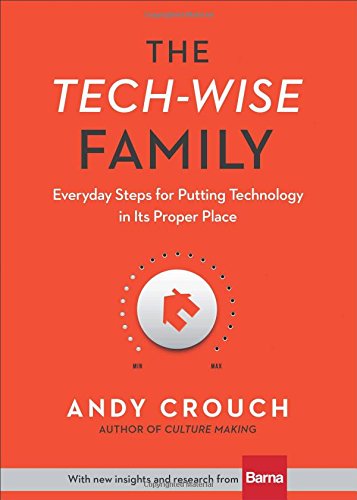Let's just put it out there: I allow my child to play Fortnite.
I am not crazy about the game (by any means), but it's something we are choosing to use as a learning experience with our 13-year-old son. It's building emotional capital and providing many opportunities for discussion.
The struggle is always there in parenting, isn't it? Do we engage in a certain cultural fad or do we say "no"?
This post isn't debating whether or not children should be allowed to play Fortnite. That is a family by family decision. Rather, this post will give you a few practical tips for setting limits on playing time and how to handle this "beast".
Because let's face it, if you let this Fortnite thing get out of control it WILL control your child's life. It's a highly addictive game that expertly ropes kids into wanting MORE.
Fortnite - What the "Experts" Say:
Several resources have helped my husband and me as we think about Fortnite and setting limits.
As you decide what is best for YOUR child, you might want to consult some sources so you can be well informed:
- Parent Guides from Axis -- I love this resource and receive their weekly newsletter. They have a fabulous Fortnite guide.
- Common Sense Media -- Parent reviews of Fortnite
- Parenting the Fornite Addict -- a sensible article from the NY Times
- Fortnite Review -- from Focus on the Family
- The Fortnite Phenomenon -- from Christian Parenting
I also wanted to share a piece of advice from our family friend, Jonathan Morrow. Jonathan is an author, speaker, and professor who specializes in equipping young people in their Christian Faith.
(Our boys happen to play Fortnite together, too!)
“While every parent needs to come to their own conviction on their kids playing Fortnite, (and give grace to those who disagree) we have decided to let our 13 year old son play with limits (typically no more than an hour at a time and not everyday) as he earns time through reading, exercising, and extra chores. Also he only plays squads with kids whose parents we know. Given how popular the game is, it is an excellent coaching opportunity with him about the power of media, the importance of self control, and how to approach entertainment with wisdom and from a biblical worldview. That’s how we are currently approaching it. ”
How to Set Sensible Fortnite Limits For Your Child
Know Your Child
Does your child normally OBSESS over things (chances are they will likely obsess over Fortnite!)?
What is their tolerance for violence? Will playing the game translate into a cranky, agitated child, or can they easily separate the video game world from the real world?
It is important to consider your child's temperament and tolerance as you think about Fortnite and as you decide if and how much you let them play.
Know Your "Squad"
(I'm trying to be super cool and use some Fortnite lingo here.)
When playing with friends your child can form a "SQUAD" - essentially a team of their friends to work together in the game.
One of the positive things I've found about Fortnite is that it allows my son to band together with his friends. For example, he met some boys playing flag football in the spring and now they stay in touch by playing Fortnite together. My son also plays with some homeschool friends of his. These moms actually text each other when the kids want to play Fortnite - so we know how long and who they are playing with!
Who is child your playing with? Who is in their SQUAD? Do you know the parents? Are you on the same page regarding limits with the game?
The "If-Then" Deal
This summer it's been an if-then system for playing Fortnite. If you get all of your work accomplished, any additional chores, and have had physical activity, THEN you may play Fortnite.
Most days that we aren't doing anything at all (and actually those are rare this summer), my son hasn't gotten to Fortnite until 4 or 5 in the afternoon - which leaves a short window of time to play until dinner.
Perfect.
I hate to say that Fortnite has been a good carrot dangle, but it HAS. That's just the reality of where we are at right now and I'm admitting it.
Use the privilege of playing any video game as a reward for tasks completed.
Have Ongoing Discussions
We talk about issues A LOT in our home.
I love to engage my son in debates about Fortnite - why I might think it's bad and he thinks it is good. I showed him all of the comments on this Facebook post and got his reaction. We had some wonderful discussions!
I don't believe in a "my way or the highway" style of parenting, and the Fortnite issue has been no exception. As long as my son can respect our decisions and debate with us in a coherent and civil way I'm happy to engage with him!
One way to parent teens effectively is to discuss issues s A LOT - give teens input and make sure you listen to and value that input. Fortnite gives us many opportunities for those discussions.
As Always, It's About Relationship & Modeling
Doesn't everything in parenting boil down to relationship? Do we keep lines of respectful communication open with our kids? Are we there for them to show them we have their best interest at heart?
My husband has had Grant teach him how to play Fortnite and played with him. I have sat with my son while he's playing so I can see what it's all about. My son knows there are ALWAYS eyes close by. He isn't allowed to play when we no one is home.
Are we parenting from a place of love and genuine caring rather than a place of fear and squirreling them away from "the world"?
Modeling responsible behavior is also key. Do we obsess over Words with Friends on our phones (ahem - me!)? Do we obsess over checking Facebook every free minute we have?
The Fortnite craze might just be a good reminder to us (parents) to check ourselves and our own obsessive tendencies when it comes to all things technology.
So, What Are the Limits?
After all of this I will tell you our limits vary day by day. I don't have a set time limit in place. (One thing you will see about Fortnite is that you can't just SHUT IT OFF when mom says it's time to be done - that's hard to do because of the nature of the game.)
My strategy is to keep a child busy enough so they don't have much time left over to play Fortnite.
But, if it's a rainy day in the middle of the summer and they want to play with some good friends for two hours in an afternoon I'm OK with that.
(We also have the ability to just make the internet magically stop working at our house, which is a lovely thing to have in place to simply prove a point every now and then. We rarely use it, though.)
When our regular school year begins we'll go back to our policy of NO video games during the week and limited time on the weekends.
It is my hope that we are creating a culture of responsibility, discussion, and respect in our home.
These limits apply to not only Fortnite, but a host of other technological "beasts" we are trying to navigate also.
Helpful Resources to Help Us Navigate These Waters



















